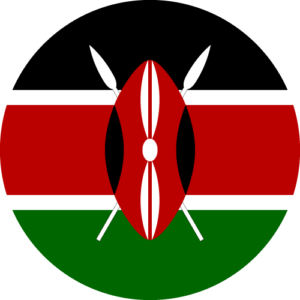Major industries in Kenya include agriculture, forestry, mining, manufacturing, tourism, and financial services; with agriculture serving as the leading industry. Fresh flowers, fruits, vegetables, tea, and coffee represent the greatest portions of Kenya’s exports; and machinery, transportation equipment, and petroleum represent the greater portions of Kenya’s imports (OEC, 2023). The Kenyan population still suffers from poverty, inequality, youth unemployment, and weak private sector investments requiring additional progress in the business environments (USAID, 2023).
There are more than fifty million people currently populating Kenya, and Nairobi, Kenya’s capital, only has an annual growth rate of about 3 percent since 2000. The slow, moderate improvements have only increased the rate of poverty, slums, and subjection to food insecurity (Ivers et al., 2022). Africa is projected to double its population by the year 2050, yielding demand for urbanization in low-income areas. Driven by the agriculture, manufacturing, tourism, and services industry, Kenya still has yet to organize coordinated business policy reforms for national and county governments (Anyanzwa, 2022). The lack of business policy reform has led to complex processes to access permits and licenses, rigid labor regulations, inefficiency with tax administration, and high crime risk (Kenya, 2022). However, as the levels of education attainment rise in Kenya, businesses are still rising against challenges and transitioning from micro- to medium-, to larger enterprises.
Sixty-seven percent of Kenya’s retail industry is considered informal (Mabidlala, 2021). Informal retailing refers to the selling of goods and services that are provided by independently owned businesses on the streets, sidewalks, and public places. In Kenya, the informal retail sectors are called Dukas (Technoserve, 2020). Locals commonly purchase household goods, food, personal essentials, and second-hand clothing known as “mitumba”(Kamau, 2021). These businesses tend to be small in scale, family-operated, labor-intensive and rely on indigenous resources (ILO, 2021). Approximately 250,000 informal businesses are operating nationwide and mitumba, particularly clothing from Western countries, are generating the most frequent business (Kamau, 2021). Although informal and operating outside of legal and administrative rules, Dukas provide a livelihood presence of versatility, style, and distinctiveness to the communities in Kenya (Technoserve, 2020). The wholesale trade and retail industry in Kenya is heavily influenced by Kenyans’ labor and social-economic status. The business owners that are avoiding various costs due to insufficient finance or expensive expenses are contributing to compromising Kenya’s economy. Currently, there is an increased rate for personal tax in Kenya under the Finance Act of 2022 (EY Global, 2022).
Page Author: Ritchy Isaac




